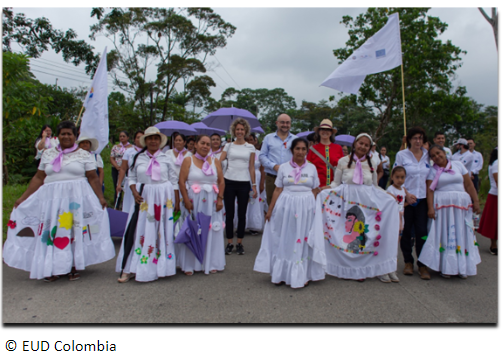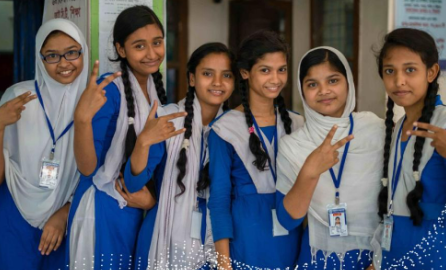Empowering women change-makers in Colombia

-
Gender marker: G2-Promotes gender equality as a primary objective
-
Period of implementation: 2019 - 2024
-
Amount: EUR 6,340,000
-
Geographical area: Americas and the Caribbean
-
Implementing partners:
-
Link to the project: https://www.fondoeuropeoparalapaz.eu/en/project/mujeres-que-transforman/
-
GAP III’s Areas:
-
Gender-Based Violence
-
Economic and social empowerment
-
Women, peace and security
-
In 2016, the Colombian government and the Revolutionary Armed Forces of Colombia (FARC) signed a final peace agreement, formally ending 53 years of internal armed conflict. This peace agreement was an opportunity to advance reconciliation and the structural transformation of the country, creating better conditions for the most affected rural populations. Of course, after such a long conflict, there is still much to be done to improve the situation of Colombians.
Supported by implementing partners Stichting Interkerkelijke Organisatie Voor Ontwikkelingssamenwerking (ICCO) and the Alianza Departamental de Mujeres “Tejedoras de Vida”, the EU-funded Women Change-Makers project is an occasion for women to fulfil their rights, to participate effectively and equally in society, and to be recognised and valued in the transformation that Colombia and Putumayo require. Targeted groups include 3,000 people in Putumayo (90% women and their families; 25% young women) who are part of women's organisations, including women, victims of gender-based violence (GBV), sexual gender-based violence (SGBV), peasant women, small producers and young entrepreneurs.
As part of the EU Trust Fund for Peace in Colombia, the work is supported by a technical assistance facility that provides input and analysis and includes a gender expert. It is also important for a Team Europe Initiative on Peace.
The project´s objectives and activities have a significant focus on gender-based violence. For instance, direct activities include training women leaders to listen to and support women who are victims of GBV, capacity-building for public officials, and awareness-raising in society through campaigns, media training and mobilisation, and denunciation.
Aside from the more direct actions, an important factor for long-lasting and durable change is women's economic empowerment. This is sought through the development of agro-food chains and economic initiatives related to sectors with high potential for growth and sustainability. There are also initiatives that contribute to equal opportunities between men and women, technical assistance, regional marketing, innovation, soft skills and business management focusing on gender.
As a result of these activities, women’s rights and the social and institutional fabric of the country have been strengthened, at both individual and organisational levels. Victim blaming has been reduced, trust and solidarity among women have increased, and trained women leaders are taking action to raise awareness of gender-based violence, reaching out to other women and young people. These efforts also improve access to justice for GBV and ultimately promote social cohesion and a culture of peace.
"The difficulty that we previously had was the fear of expression, of participating in community action meetings and in organisations, but thanks to all the strengthening that we have received through the trainings, we have become more empowered women, women who we are able to move forward and contribute to our community." Leader of the municipality of Puerto Caicedo, participant in the training for community action boards.
